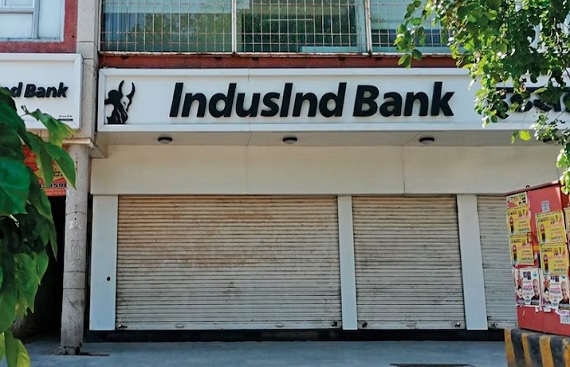IndusInd Bank to Reveal New CEO Amid Fallout from Derivatives Scandal
By
siliconindia | Monday, 30 June 2025, 02:16:28 PM IST

- IndusInd Bank to announce CEO shortlist amid RBI's June 30 deadline, with Rajiv Anand, Anup Saha, and Rahul Shukla as top contenders.
- New CEO will face the challenge of restoring trust after a Rs 2,093 crore derivatives trading loss and ongoing SEBI probe.
- SEBI barred four senior executives for failure to disclose financial losses on time; KPMG’s appointment also under scrutiny.
In a critical move to stabilise operations and restore investor confidence, IndusInd Bank is expected to unveil its shortlist for the next chief executive officer (CEO). The announcement comes as part of a directive by the Reserve Bank of India (RBI), which had asked the private lender to submit its CEO recommendations by June 30.
The decision holds added significance as the bank navigates through turbulent times triggered by a major derivatives trading loss and a subsequent leadership crisis. According to reports, three candidates have emerged as frontrunners for the top post: Rajiv Anand, Deputy Managing Director at Axis Bank set to retire in August Anup Saha, MD at Bajaj Finance with strong credentials in digital and retail banking, and Rahul Shukla, a former HDFC Bank executive known for his expertise in commercial and rural banking, currently on sabbatical.
Whichever candidate is chosen will face the daunting task of leading IndusInd through a phase of rebuilding, ensuring stricter governance and regaining the trust of regulators and stakeholders.
The leadership transition is taking place as the Securities and Exchange Board of India (SEBI) continues its probe into accounting irregularities linked to a reported Rs 2,093 crore loss at the bank. Earlier this month, SEBI issued a corrigendum to its interim order, clarifying that KPMG’s appointment to assess the irregularities was based on an 'engagement note' rather than a formal board-approved mandate.
Despite bringing in KPMG in February 2024, the bank delayed informing stock exchanges about the losses and failed to classify the information as price-sensitive until March 2025. SEBI has also barred four senior executives from dealing in securities, citing lapses in timely disclosure and internal oversight.
The CEO appointment marks a pivotal moment for the bank’s path to recovery and regulatory compliance.
Read More News :
India Must Seize Moment to Lead Global Supply Chains: Anand Mahindra
The Ultimate Gifting Guide: Perfect Presents for Him and Her



